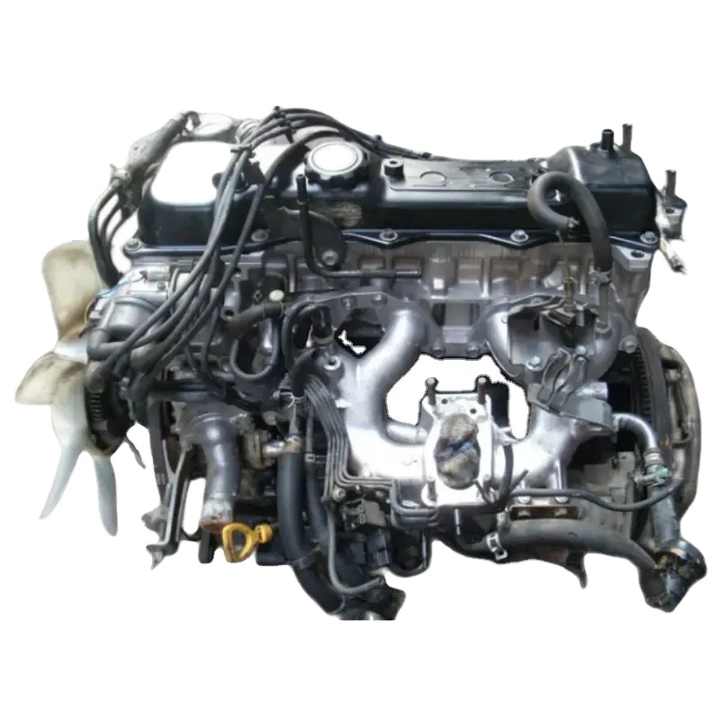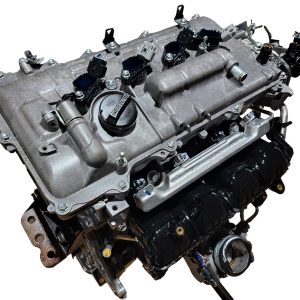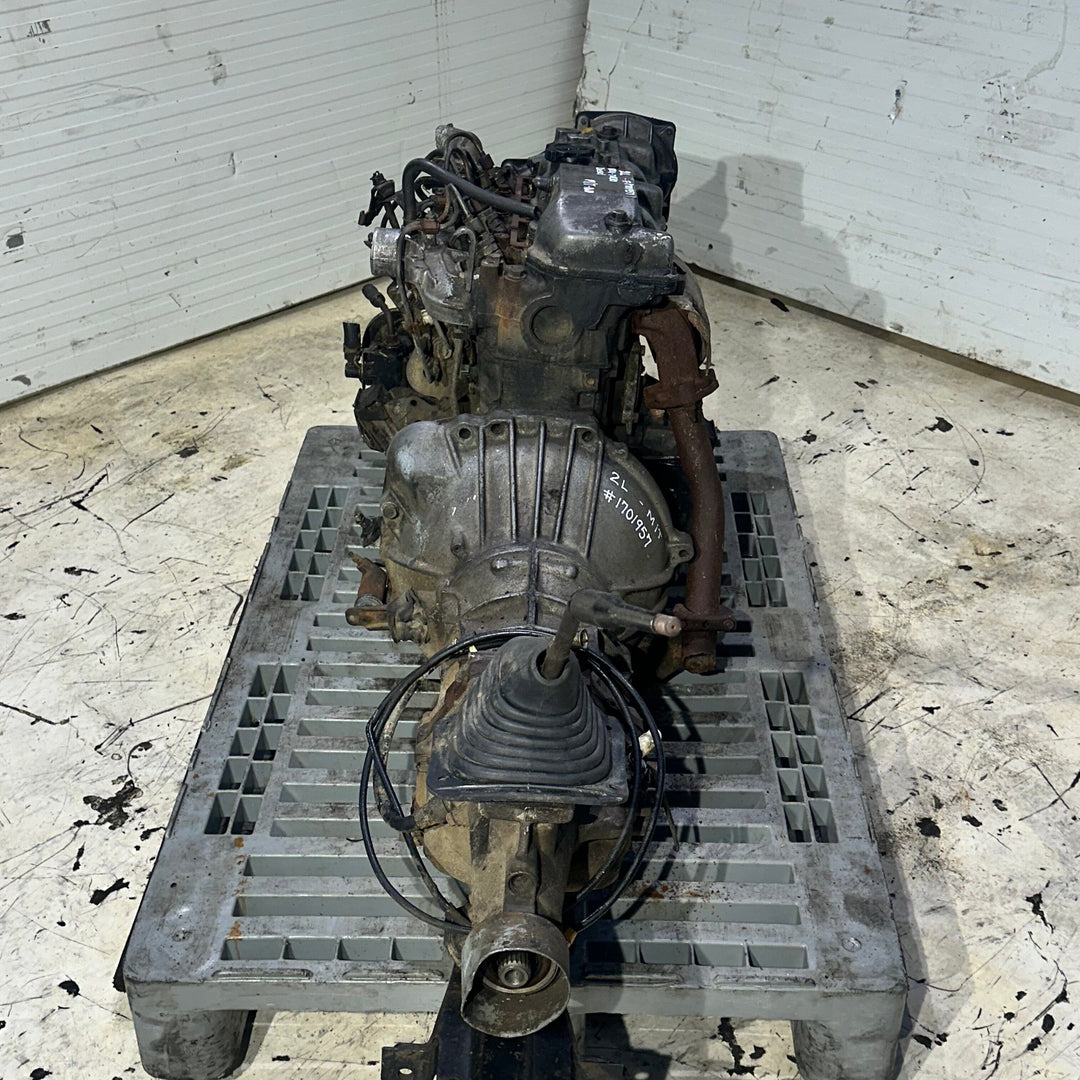Discover Just How the Toyota RunX RSI Excels in Efficiency and Convenience
Discover Just How the Toyota RunX RSI Excels in Efficiency and Convenience
Blog Article
Explore Quality and Value: Your Guide to Buying a 2nd Hand Engine
When considering the purchase of a second-hand engine, understanding the detailed equilibrium between high quality and worth is critical. A complete assessment of engine problem, dependability, and history is important to guarantee a sound investment. By conducting appropriate inspections and research, potential customers can browse the intricacies of the market much more properly. The nuances of guarantee choices and pricing techniques can considerably affect the general decision-making procedure. As you contemplate these elements, one question continues to be: what specific aspects will inevitably guide your choice in this crucial financial investment?
Comprehending Engine Kind
When considering the purchase of a pre-owned engine, understanding of the various engine kinds is crucial for making a notified decision. Engines can usually be categorized into 2 main kinds: inner combustion engines and electric engines. Internal combustion engines, which include gasoline and diesel variations, depend on the burning of gas to create power. Gasoline engines are normally lighter and rev higher, making them suitable for performance lorries, while diesel motor are renowned for their torque and gas performance, usually favored in sturdy applications.
On the other hand, electric engines make use of electrical power saved in batteries to power the car, supplying a cleaner choice with fewer relocating parts and reduced maintenance needs. Within these groups, there are further distinctions, such as four-stroke versus two-stroke interior combustion engines, and various electrical motor configurations.
Understanding these distinctions is crucial, as they affect efficiency, compatibility with existing vehicle systems, and long-term operational prices. By acquainting oneself with the different kinds of engines offered, potential buyers can better examine their demands and choose that line up with their vehicle's requirements and their individual preferences.

Reviewing Engine Problem
A comprehensive evaluation of engine problem is paramount for any person taking into consideration the acquisition of a used engine. Begin with a visual inspection; check for indicators of oil leaks, corrosion, or any physical damages to the engine block. A clean engine is typically a measure of great upkeep methods, while extreme grime may recommend neglect.
Next, evaluate the engine's parts, consisting of the timing belt, gaskets, and seals. Try to find deterioration, as these parts can be expensive to change. Furthermore, check out the engine mounts, as harmed places may cause resonances and more mechanical issues.
A compression test is important to assess interior engine wellness. Consistent compression throughout all cylinders suggests a well-maintained engine, whereas substantial inconsistencies might point to internal damages or wear.
Listening to the engine during a startup can offer beneficial understandings; any kind of uncommon noises, such as knocking or rattling, may suggest much deeper issues. If possible, demand an examination run to evaluate efficiency under lots. By meticulously evaluating these variables, potential buyers can make educated decisions and secure a high quality second-hand engine.
Checking Engine History
Comprehending the engine's history is vital for making an educated acquisition. Understanding of previous usage, maintenance documents, and any kind of previous problems can dramatically influence the engine's reliability and durability. Beginning by asking for the lorry recognition number (VIN) or engine serial number, which allows you to map the engine's history.
Use offered sources, such as Carfax or AutoCheck, to obtain an automobile history record. This record will certainly provide important insights, consisting of accident history, service documents, and previous possession information. Toyota RunX RSI. Pay particular interest to any type of indicators of severe damage or duplicated repair services, which may show underlying issues
Inquire about upkeep regimens carried out on the engine. Regular oil modifications, timing belt replacements, and other safety nets reflect responsible possession. In addition, ask if the engine has undertaken any modifications, as non-standard alterations can affect efficiency and compatibility with your vehicle.
Lastly, ideally, look for confirmation from a relied on auto mechanic who can analyze the engine's condition based on its history try here (Toyota RunX RSI). This comprehensive investigation will aid you ensure and avoid possible pitfalls that your investment is rewarding and audio
Service Warranty and Return Policies
Buying a used engine often features differing service warranty and return policies that can substantially impact your choice. When taking into consideration an utilized engine, it is important to thoroughly assess the guarantee alternatives given by the vendor. Some vendors might use minimal service warranties that cover particular components for a specified duration, while others might supply more detailed protection. Recognizing the problems and terms connected to these guarantees is important, as they can affect the long-lasting worth and reliability of your acquisition.

Moreover, credible vendors usually offer documentation that details the guarantee and return process, guaranteeing openness. Always ask for this info before finalizing your acquisition. A well-defined service warranty and return policy can give assurance and secure your financial investment, making it an important part of the decision-making process when getting a pre-owned engine.
Locating the very best Offers
When seeking the very best offers on a used engine, it is important to carry out detailed research and compare costs from different sellers. Begin by discovering on-line marketplaces, automobile forums, and local salvage lawns to gather a thorough understanding of the market. Making use of cost contrast tools can improve this procedure, highlighting affordable prices throughout various platforms.

Think about timing your purchase tactically. Seasonal variations in demand can impact rates, with specific times of the year offering far better bargains. Additionally, be open to bargaining rates; several sellers might be willing to reduce their asking rate, particularly if the more information engine has actually been detailed for an extended period.
Final Thought
In summary, purchasing a used engine necessitates a complete assessment of top quality and value. Assessing engine condition with tests and evaluations, confirming its history, and recognizing warranty and return plans are essential steps.
When taking into consideration the purchase of a second-hand engine, understanding of the various engine types is vital for making an informed choice. Engines can generally be classified right into two major types: interior burning engines and electrical engines. Fuel engines are generally lighter and rev greater, making Your Domain Name them ideal for efficiency cars, while diesel engines are renowned for their torque and fuel performance, usually favored in durable applications.
A complete assessment of engine condition is extremely important for anybody thinking about the acquisition of a pre-owned engine. Beginning by requesting the car identification number (VIN) or engine serial number, which enables you to trace the engine's background.
Report this page